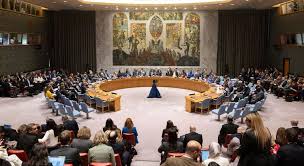Israel should heed UNGA resolution on two-state solution. It cannot have security by force alone.
The idea of a two-state solution to the Palestinian issue — a sovereign State of Palestine alongside Israel — dates back to 1937 (when the present-day State of Israel didn’t exist). Since then, multiple efforts to implement the policy have failed, the most notable being the Oslo Accords of the early 1990s. Israel’s occupation of Gaza and the West Bank after the 1967 war, and its subsequent settlement expansion in the latter, gradually eroded the possibility of such a solution. Today, Israel effectively controls all territory from the Jordan River to the Mediterranean. But Israel’s brutal war in Gaza, launched in response to Hamas’s October 7 terrorist attack, has revived the global debate on the two-state framework. At its 80th session, the UN General Assembly on September 12 overwhelmingly endorsed a declaration — stemming from a July UN conference hosted by Saudi Arabia and France — calling for “ tangible, timebound, and irreversible steps” towards a two-state solution. The resolution, which also demanded an end to the war and the establishment of a Palestinian Authority government in Gaza, passed with 142 votes in favour, 10 against, and 12 abstentions. Among the notable votes in support was that of India.
Significantly, India’s vote in support comes after three abstentions at the UN: In October 2023 (calling for a humanitarian truce), September 2024 (demanding Israel end its unlawful presence in the occupied Palestinian territories), and June 2025 (calling for a ceasefire in Gaza). New Delhi’s decision is welcome, especially at a time when Israel seems to be losing global support, including that of its traditional supporters, and there is growing opposition to the war within Israel as well.
General Assembly resolutions are not binding. But at a moment when, in the words of the UN, Israel is “systematically” and “permanently extinguishing the Palestinian presence” in parts of Gaza, such votes keep the flame of a two-state solution alive. The creation of a State of Palestine will be extraordinarily difficult, not least because the US, Israel’s closest ally, refuses to support it. Washington opposed the September 12 resolution, dismissing it as “another misguided and ill-timed publicity stunt” and a “gift to Hamas”. Yet, the resolution has also called for a Hamas-free Gaza. Israel cannot achieve security through force alone. Prime Minister Benjamin Netanyahu, who has repeatedly and unapologetically rejected a two-state solution, would do well to heed the world’s renewed call for a political compromise, end the bloodshed of Gazans and save the hostages, and work towards a future in which both Israelis and Palestinians can live in peace.
